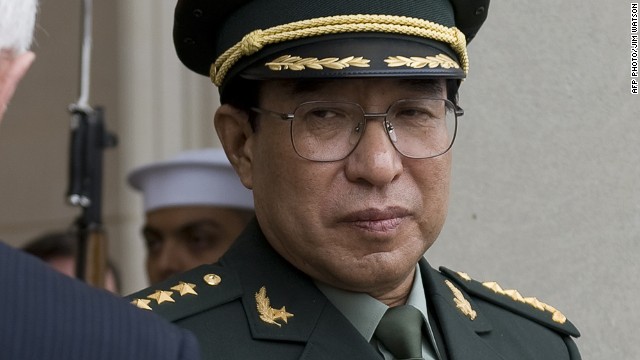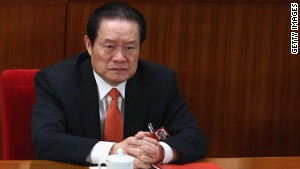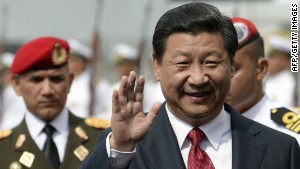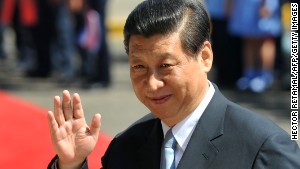China's biggest 'military tiger' Xu Caihou confesses to taking bribes
By Paul Armstrong and Steven Jiang, CNN
updated 1:18 AM EDT, Wed October 29, 2014

Xu Caihou was also expelled from the Communist Party and had his rank of general revoked.
STORY HIGHLIGHTS
- Xu was a former vice chairman of the Central Military Commission
- Statement: He took advantage of his position to promote others and take bribes
- Xu is the most senior military leader to face corruption charges in recent memory
- Was one of four senior members to be expelled from the ruling Communist Party
Hong Kong (CNN) --
A top retired general has confessed to taking bribes, becoming the
highest-profile figure in China's military to be caught up in President
Xi Jinping's war on corruption.
Xu
Caihou, formerly the vice chairman of China's Central Military
Commission that runs the two-million strong People's Liberation Army
(PLA), was also expelled from the Chinese Communist Party and had his
rank of general revoked, according to a statement from military
prosecutors cited by the state-run Xinhua news agency Wednesday.
The
seven-month investigation, which began in March this year, found that
Xu took advantage of his position to assist the promotion of other
people, accepting huge bribes personally and through his family.
He
was also found to have sought profits for others in exchange for bribes
taken through his family members. The amount of bribe was "extremely
huge", the statement added.
The allegations against Xu, 71, were announced on June 30 when
President Xi presided over a leadership meeting to expel the retired
general and three other senior members from the ruling Communist Party.



Zero tolerance
In
a statement released after that meeting, President Xi and other Chinese
leaders reiterated their "zero tolerance" for corruption in the
government and military -- long a lightning rod for mass discontent
across the country -- but they also acknowledged the anti-graft task
would be "ongoing, complex and formidable."
The
three other former senior officials ousted from the Communist Party for
corruption were Jiang Jiemin, a former minister in charge of state
assets; Li Dongsheng, a former vice minister of public security; and
Wang Yongchun, a former deputy head of state-owned oil behemoth China
National Petroleum Corporation.
State
media characterized Xu as a big "military tiger" caught in the massive
anti-graft campaign launched by President Xi, who is also the
commander-in-chief. After becoming the head of the Communist Party in
late 2012, Xi banned official extravagance -- from banquets to year-end
gifts -- and vowed to target "tigers and flies" alike in his fight
against corruption when describing his resolve to spare no one
regardless of their position.
Xinhua recently touted the catching of 30 "tigers" since Xi took power less than two years ago.
Zhou Yongkang
Some
China watchers have noted ties between an increasing number of
disgraced officials to Zhou Yongkang, the former domestic security czar
who has been rumored to be under investigation for some time. Jiang, Li
and Wang have long been considered Zhou protégés.
State
media has reported official probes into many of Zhou's family members
as well as former associates in the domestic security apparatus, state
oil industry and southwestern Sichuan Province -- three places Zhou once
ruled. If announced, Zhou would become the highest-ranking official
ever to face corruption charges in the history of the People's Republic.
In
2013, some 182,000 officials were disciplined while courts nationwide
tried 23,000 corruption cases, according to the Communist Party's
disciplinary commission.
State
media has cited the trial and conviction last year of former
high-flying politician Bo Xilai -- though called politically motivated
by Bo supporters -- as one prime example of President Xi's determination
to clean up the Party.
No comments:
Post a Comment